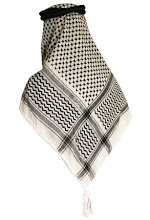GHUSL
GHUSL is the Islamic method of washing the body to obtain purification from "Hadathe Akbar" or "Greater Impurity".
HADATHE AKBAR
Hadathe Akbar is caused by the following acts:
1) Discharge of semen accompanied by sexual lust, whether such discharge occurs while sleeping or while awake.
2) Sexual intercourse.
3) Mensus (Haidh) – For Women.
4) Blood discharge after child birth (Nifaas) – For Women.
If any of the above acts results, one will be in a state of impurity (janaabat). Purification is only possible by the means of Ghusl.
1) Discharge of semen accompanied by sexual lust, whether such discharge occurs while sleeping or while awake.
2) Sexual intercourse.
3) Mensus (Haidh) – For Women.
4) Blood discharge after child birth (Nifaas) – For Women.
If any of the above acts results, one will be in a state of impurity (janaabat). Purification is only possible by the means of Ghusl.
Rules regarding HADATHE AKBAR
In the state of Hadathe Akbar or Janaabat, the following things are prohibited:
1) Salaat.
2) Touching the Holy Quraan.
3) Reciting the Holy Quraan, even without touching it.
4) To enter into a Mosque.
5) To make Tawaaf of the Holy Ka'bah.
6) In the state of Haidh, intercourse is not permissible; it is a great sin.
7) It is not permissible to remove, cut or break any nails or hair from any part of the body during the state of impurity.
1) Salaat.
2) Touching the Holy Quraan.
3) Reciting the Holy Quraan, even without touching it.
4) To enter into a Mosque.
5) To make Tawaaf of the Holy Ka'bah.
6) In the state of Haidh, intercourse is not permissible; it is a great sin.
7) It is not permissible to remove, cut or break any nails or hair from any part of the body during the state of impurity.
How to perform GHUSL
The following is the Sunnat method of performing Ghusl:
1) Wash both hands to the wrists. The hands should NOT be dipped into the basin of water for washing. Water should either run from the tap or be poured from a container.
2) The private parts and the surrounding areas must be washed, whether there is impurity or not.
3) Wash the part of the body where there may be some impurity.
4) Make a FULL WUDHU. If Ghusl is being made where the water pools around the feet, then withdrew your feet from that place (the place where you took the bath) and then washed them.
5) After Wudhu, pour water over the head THREE times.
6) Then, pour water over the right shoulder THREE times.
7) Then, pour water over the left shoulder THREE times. The water should be poured in such a way that the ENTIRE body is thoroughly drenched.
8) If the feet were not washed at the time of Wudhu, then wash them now. While pouring the water, rub well to ensure that no part of the body remains dry.
1) Wash both hands to the wrists. The hands should NOT be dipped into the basin of water for washing. Water should either run from the tap or be poured from a container.
2) The private parts and the surrounding areas must be washed, whether there is impurity or not.
3) Wash the part of the body where there may be some impurity.
4) Make a FULL WUDHU. If Ghusl is being made where the water pools around the feet, then withdrew your feet from that place (the place where you took the bath) and then washed them.
5) After Wudhu, pour water over the head THREE times.
6) Then, pour water over the right shoulder THREE times.
7) Then, pour water over the left shoulder THREE times. The water should be poured in such a way that the ENTIRE body is thoroughly drenched.
8) If the feet were not washed at the time of Wudhu, then wash them now. While pouring the water, rub well to ensure that no part of the body remains dry.
The FARDH acts of GHUSL
The Ghusl has three compulsory acts and they are as follows:
1) Rinsing the mouth thoroughly, ensuring that the water reaches the back of the throat.
2) Taking water into the nostrils to the limit of the tender or fleshy part of the nose.
3) Drenching the WHOLE body - from head to toe - thoroughly, ensuring that no part of the body is left dry.
If the above points are carried out then the Ghusl is complete and one is purified.
Absolute care must be taken to ensure that the Fardh acts are not left out, as the Ghusl will not be valid.
1) Rinsing the mouth thoroughly, ensuring that the water reaches the back of the throat.
2) Taking water into the nostrils to the limit of the tender or fleshy part of the nose.
3) Drenching the WHOLE body - from head to toe - thoroughly, ensuring that no part of the body is left dry.
If the above points are carried out then the Ghusl is complete and one is purified.
Absolute care must be taken to ensure that the Fardh acts are not left out, as the Ghusl will not be valid.
The SUNNAT acts of GHUSL
1) Make niyyat (intention) for Ghusl
2) Wash both hands
3) Wash the private parts
4) Make Wudhu
5) Pour water over head thrice
6) Pour water over right shoulder thrice
7) Pour water over left shoulder thrice
There is great reward in fulfilling the Sunnat acts. The Sunnan acts listed above should not be neglected or left out unnecessarily.
2) Wash both hands
3) Wash the private parts
4) Make Wudhu
5) Pour water over head thrice
6) Pour water over right shoulder thrice
7) Pour water over left shoulder thrice
There is great reward in fulfilling the Sunnat acts. The Sunnan acts listed above should not be neglected or left out unnecessarily.
The MAKROOH acts of Ghusl
The factors, which are makrooh in Wudhu, are also makrooh in Ghusl. Other Makrooh factors in Ghusl are:
1) To recite ANY dua during Ghusl
2) To face the Qibla is not good
3) Speaking unnecessarily, while nude.
1) To recite ANY dua during Ghusl
2) To face the Qibla is not good
3) Speaking unnecessarily, while nude.
Some Masaa'il relating to Ghusl.
1) Do NOT face the Qibla when doing Ghusl.
2) Do NOT talk.
3) Make haste in covering the body after Ghusl.
4) Even if a single hair remains dry then the Ghusl is NOT valid.
5) If one recalls that a certain part of the body was not washed then they can wash it at that time. There is no need to repeat the Ghusl.
6) Nail varnish, rings and other ornaments must be removed to ensure that the water reaches all places.
7) Any food particle stuck between the teeth MUST be removed BEFORE performing Ghusl.
Remember to cut the nails of the fingers and toes as well as removing any unwanted hair from under the armpits and under the navel. The removal of unwanted hair and nails should preferably be carried out once a week. Care should be taken that if nails/hair are left in excess of 40 days then the person will be guilty of sin.
2) Do NOT talk.
3) Make haste in covering the body after Ghusl.
4) Even if a single hair remains dry then the Ghusl is NOT valid.
5) If one recalls that a certain part of the body was not washed then they can wash it at that time. There is no need to repeat the Ghusl.
6) Nail varnish, rings and other ornaments must be removed to ensure that the water reaches all places.
7) Any food particle stuck between the teeth MUST be removed BEFORE performing Ghusl.
Remember to cut the nails of the fingers and toes as well as removing any unwanted hair from under the armpits and under the navel. The removal of unwanted hair and nails should preferably be carried out once a week. Care should be taken that if nails/hair are left in excess of 40 days then the person will be guilty of sin.
And Allah Knows Best…
With Regards,
Atif Mustafa Khan




No comments:
Post a Comment